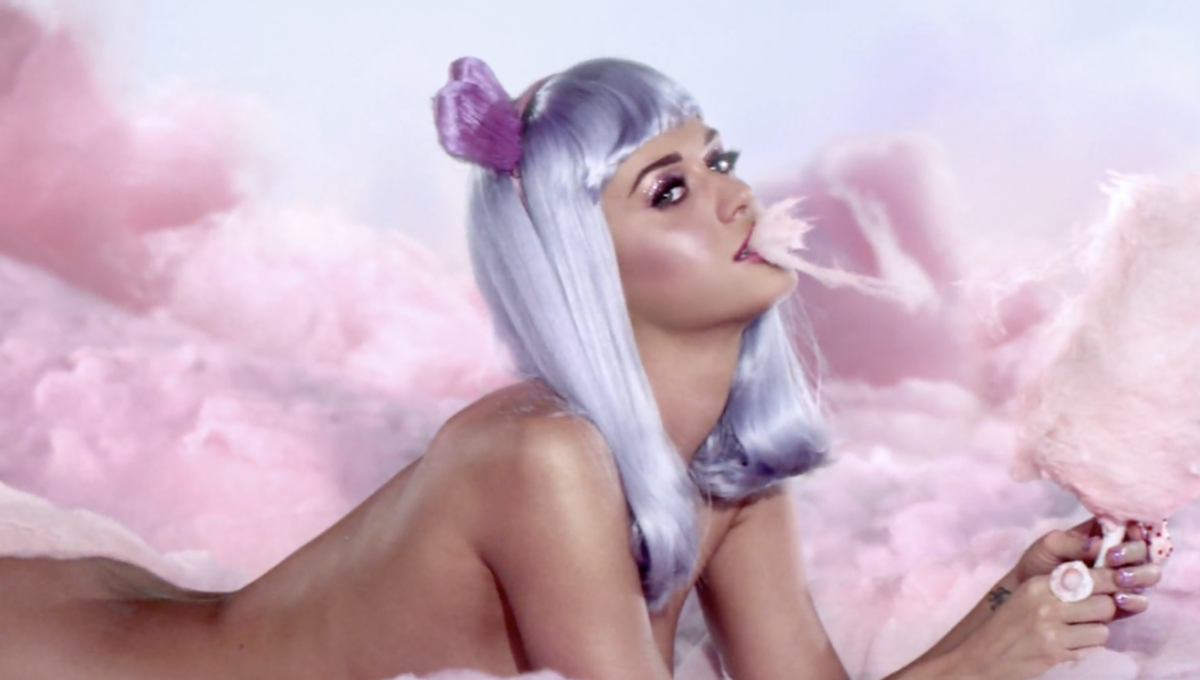Over the weekend, Hillary Clinton, touring to promote her memoir "Hard Choices," met with Katy Perry, taking a break from touring to promote her album, "Prism." The meeting took place for the benefit of the Internet -- if a merger of two incredibly popular and well-liked celebrities whom one wouldn't expect to meet in real life doesn't end up on Instagram and Twitter, did it happen?
It was in some ways a match made in heaven: "Hard Choices" and "Prism" both purport to give the consumer new insight into the artist but cohere to genre clichés. ("Prism," marketed as kicking off a spiritual, thoughtful phase for Perry, is most notable for its innuendo-laden hit "Dark Horse"; "Hard Choices" is, when all is said and done, just another politician's memoir.) And both Clinton and Perry have reinvented themselves from traditional 2000s attitudes toward gay people into equal-rights icons.
Clinton's evolution on gay rights is the one many politicians have made, though one that's tripped her up, particularly in recent weeks. Her "Fresh Air" interview with Terry Gross featured a combative exchange in which Gross asked Clinton, repeatedly, whether the 2008 presidential candidate had withheld her own true feelings about equal rights for gay people while campaigning, and after. (Clinton, who has lately put herself forward as a full-throated advocate for the rights of LGBT people worldwide, campaigned in 2008 as an opponent of marriage equality.)
Perry, too, has evolved. Her mainstream career effectively began in 2007 with the promotional single "Ur So Gay," whose lyrics are directed at a former lover; Perry despises him for fey traits including vegetarianism, driving an electric car and being thin. The song's first line is "I hope you hang yourself with your H&M scarf." The song did what it was meant to do in getting the public's attention, and the Perry machine marched on. Her next single was the smash hit "I Kissed a Girl," which cashed in on the titillation of faux-lesbianism, even as Perry stipulated that she still had a boyfriend.
This was perfectly in line with mid-to-late-2000s attitudes toward gay people, just as was Hillary Clinton's opposition to marriage equality. But the speed with which mass opinion has changed on the equality issue hasn't left Perry flat-footed. Without an aggressive press to hold her to account (Perry won't be on "Fresh Air" any time soon), she's remade herself as a pro-equality crusader, casting the vague song "Firework" as an anthem for marginalized people, accepting an award from the Trevor Project and telling off the prime minister of Australia. It's possible, even likely, that Perry's beliefs have changed -- she campaigned aggressively for Barack Obama in 2012 and is several years older, now. But the nasty, mean-spirited "I Kissed a Girl" is still with us; Perry's performing it on her current tour.
An alliance with Perry can't hurt Clinton; Perry's performances at Obama rallies, back in 2012, helped to boost turnout, and her ribald lyrics didn't come in for much criticism from the right. If anything, Perry ought to be an inspiration to Clinton -- proof positive that the public won't much remember or care about the details of what you put on the record, or on your records, early on, as long as you have an empowering message to send out now.

Shares